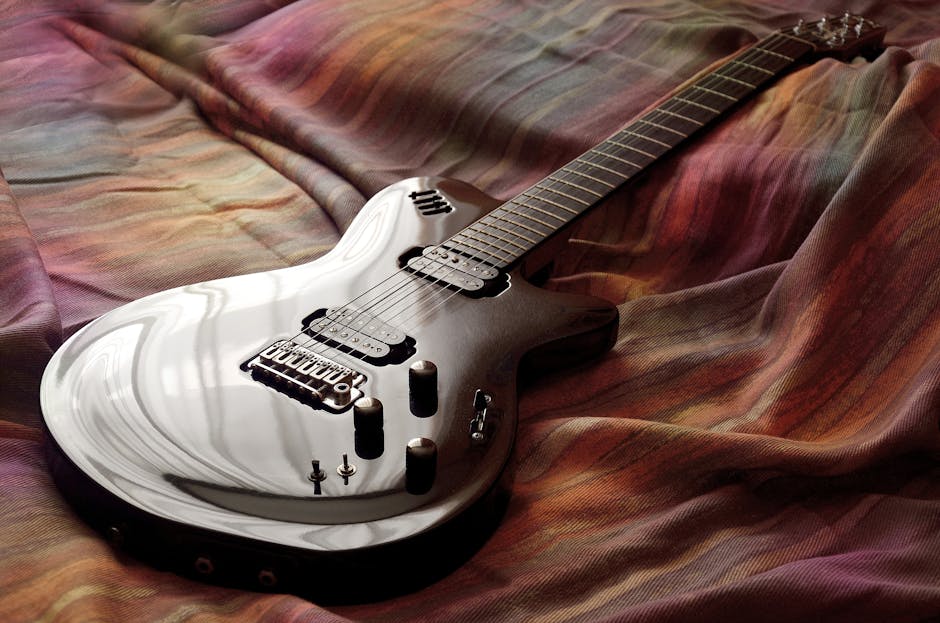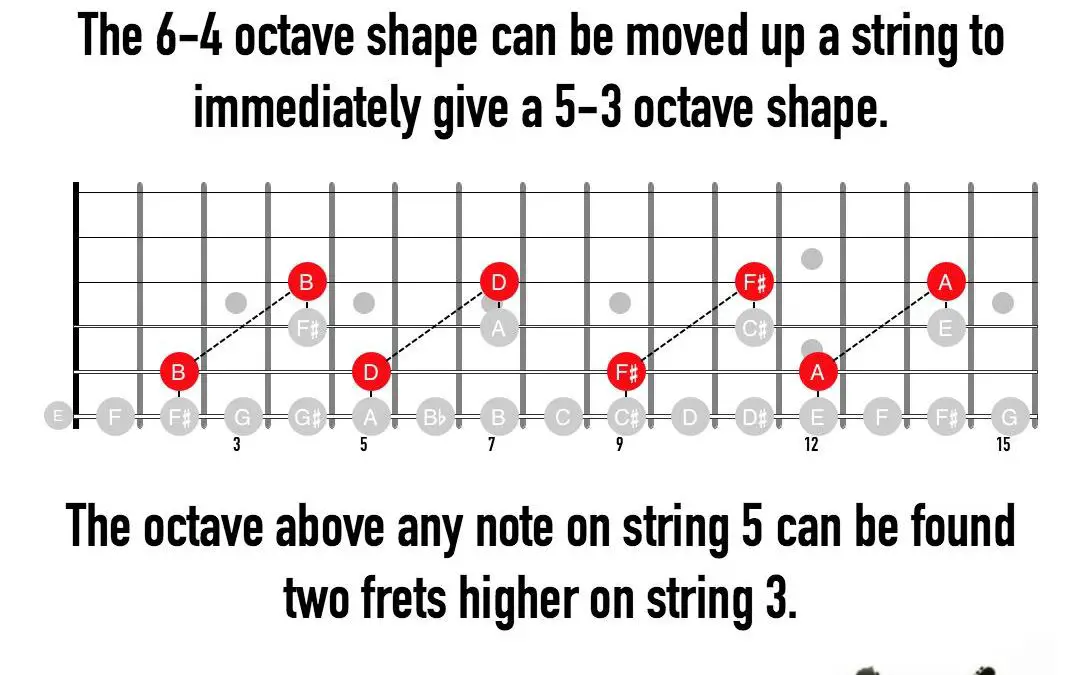Are you tired of feeling like a fish out of water every time you pick up your guitar? Do the frets on your instrument resemble a mysterious maze that only a seasoned detective could navigate? Fear not, fellow six-string soldier, for we have the key to unlocking the secrets of the guitar fretboard! In this article, we will provide you with essential tips and tricks to help you master the fretboard and become a fretboard ninja in no time. So grab your axe, tune up, and get ready to rock your way to fretboard mastery!
Contents
- 1
- 2 Exploring the Principles of Guitar Fretboard Navigation
- 3 Mastering Chord Shapes and Scales Across the Neck
- 4 Utilizing Fretboard Markers for Efficient Learning
- 5 Developing Speed and Fluency with Fretboard Exercises
- 6 Incorporating Fretboard Knowledge into Creative Playing
- 7 Advancing Your Skills with Advanced Fretboard Concepts
- 8 FAQs
- 9 Rock On!
layout-of-the-guitar-fretboard”>Understanding the Layout of the Guitar Fretboard
So, you want to understand the layout of the guitar fretboard, huh? Well buckle up, because we’re about to take a wild ride through this maze of strings and frets!
First things first – let’s talk about those magical vertical lines that run down the fretboard. These are called frets, and they are there to help guide your fingers to the right spot. Each fret represents a different note, so it’s important to get familiar with them. Think of them as your trusty road signs on the musical highway.
Now, onto the horizontal lines - those are the strings of the guitar. While it may seem like a tangle of wires at first, each string has a specific name and pitch. From the chunky low E string to the twangy high E string, each one brings its own unique flavor to the musical table.
As you start to explore the fretboard, you’ll notice that certain patterns emerge. **Chords** start to make sense, scales become less intimidating, and before you know it, you’re shredding like a rock god. So, strap on your guitar, dive into the fretboard jungle, and embrace the wild ride ahead!
Have you ever found yourself lost on the guitar fretboard, feeling like you’re stumbling through a musical maze with no idea where you’re going? Fear not, fellow guitar enthusiasts, for we are about to embark on a wild and enlightening journey through the principles of guitar fretboard navigation.
First and foremost, familiarize yourself with the layout of the fretboard. Think of it as a treasure map, with each fret representing a new clue waiting to be discovered. Start by memorizing the names of the strings (EADGBE) and pay attention to the fret markers along the neck. These little dots are like road signs guiding you along the musical highway.
Next, understand the concept of intervals. These are the building blocks of music and will help you navigate your way around the fretboard with ease. Practice playing scales and arpeggios in different positions, paying attention to how the intervals shift as you move up and down the neck. Before you know it, you’ll be cruising through chord progressions like a seasoned navigator.
Lastly, don’t be afraid to experiment and get creative. The fretboard is your playground, so have fun exploring different patterns, shapes, and techniques. Use your ear to guide you and trust your instincts. Remember, there are no wrong turns in music, only new and exciting pathways waiting to be discovered. So grab your guitar, buckle up, and let’s embark on this thrilling adventure together!

Mastering Chord Shapes and Scales Across the Neck
So you think you’re pretty good with your guitar, huh? Well, prepare to take your skills to the next level by ! Trust me, once you’ve got this down, you’ll be the envy of all your guitar-playing friends.
First things first, let’s talk about chord shapes. You might be used to playing the same old open chords, but it’s time to branch out and explore the fretboard. By learning chord shapes all over the neck, you’ll be able to spice up your playing and add some serious flair to your sound. Plus, it’s a great way to impress anyone who happens to be watching.
Now, let’s move on to scales. Scales are like the secret sauce of guitar playing – they add that extra bit of flavor that takes your playing from good to great. By mastering scales across the neck, you’ll not only improve your technique, but you’ll also gain a better understanding of how music works. Plus, let’s be real, there’s nothing quite like shredding a killer solo with confidence.
So, grab your guitar, buckle up, and get ready to dive headfirst into the world of chord shapes and scales. With a little practice and a lot of determination, you’ll be amazed at how quickly you can level up your guitar skills. Who knows, maybe one day you’ll even give Jimi Hendrix a run for his money. Hey, a guitarist can dream, right?

Utilizing Fretboard Markers for Efficient Learning
Have you ever looked down at your guitar fretboard and felt like you were lost in a sea of dots and lines? Fear not, my fellow six-stringed friend! Those fretboard markers are not just random decorations – they are your secret weapon for efficient learning.
First off, let’s talk about those classic dots on the fretboard. Whether they’re made of plastic, mother of pearl, or unicorn tears, those little guys are your best friends. Use them as reference points so you never lose track of where you are on the neck. Think of them as your musical GPS – except they won’t reroute you through a construction zone.
Next up, let’s not forget about the majestic shark tooth inlays. These bad boys not only look cool, but they also serve a purpose. When you see that shark tooth staring back at you, it’s a gentle reminder that you’re about to hit the 5th fret. And hey, if it helps you avoid landing in musical deep waters, why not embrace the tooth?
Now, onto the mysterious world of side dots. Those sneaky little devils, hiding on the side of your fretboard like ninjas in the night. Don’t underestimate their power – they are there to guide you when you’re playing in the dark (literally and figuratively). Trust in the side dots, my friends. They won’t let you stray off course, even when the lights go out.

Developing Speed and Fluency with Fretboard Exercises
Are you tired of feeling like a fumbling amateur every time you pick up your guitar? Well, fret not my friend, because I have the perfect solution for you! By incorporating some simple yet effective fretboard exercises into your practice routine, you’ll be well on your way to developing lightning-fast speed and effortless fluency in no time.
One of my favorite exercises to improve speed and dexterity on the fretboard is the **Spider Walk**. This exercise involves playing a simple pattern of notes in a chromatic sequence, moving up and down the strings with each finger. Not only does this exercise help you build finger independence and coordination, but it also looks pretty darn cool when you pull it off flawlessly.
Another great exercise to improve your fretboard fluency is practicing **scales in all positions**. By mastering scales in various keys and positions on the fretboard, you’ll not only improve your knowledge of music theory, but you’ll also develop a deeper understanding of how notes relate to each other on the guitar.
So, next time you pick up your guitar, ditch the mindless noodling and dedicate some time to these fretboard exercises. Your fingers will thank you, and pretty soon you’ll be shredding like a rock god in no time!
Incorporating Fretboard Knowledge into Creative Playing
Now that you’ve mastered the basics of fretboard knowledge, it’s time to take your playing to the next level by incorporating that knowledge into your creative endeavors. Here are some fun and quirky ways to spice up your playing:
- Experiment with different scales: Instead of sticking to the same old pentatonic scale, try exploring different scales like the Mixolydian or Dorian scales. This will add a unique flavor to your playing and help you break out of any creative rut you may be stuck in.
- Play around with chord inversions: Instead of playing the same old chords in the same old positions, try experimenting with different inversions to create new and interesting chord voicings. This will give your playing a fresh and unique sound that will catch the ear of anyone listening.
- Use slides and bends creatively: Instead of just using slides and bends to add flavor to your playing, try using them in unexpected ways to create surprising and unexpected sounds. This will add an element of unpredictability to your playing that will keep your audience on their toes.
Remember, the key to incorporating fretboard knowledge into your creative playing is to always be willing to experiment and try new things. Don’t be afraid to step out of your comfort zone and push the boundaries of what you thought was possible on the guitar. Who knows, you may just stumble upon a new sound that becomes your signature style!
Advancing Your Skills with Advanced Fretboard Concepts
So you think you’re a pretty hotshot guitarist, eh? Well, buckle up buttercup because it’s time to take your skills to the next level with some advanced fretboard concepts. You’ve mastered the basics, but now it’s time to dive deep into the world of guitar wizardry and blow some minds with your mad skills.
First up, let’s talk about modes. Yeah, I know, they sound like something out of a sci-fi movie, but trust me, they’re real. Modes are like different flavors of scales that can give your playing a whole new level of depth and sophistication. Mix and match them to create killer solos that will make jaws drop and heads turn.
Next, let’s talk about chord inversions. No, it’s not some fancy math term, it’s a killer technique that can take your chord progressions from meh to magnificent. By rearranging the notes in a chord, you can create a whole new sound that will have people wondering if you sold your soul to the guitar devil.
And finally, let’s not forget about arpeggios. Yeah, they sound like something you’d order at a fancy Italian restaurant, but in reality, they’re a killer way to add some flair to your playing. By playing the individual notes of a chord separately, you can create some seriously epic sounds that will have people bowing down at your feet.
FAQs
How can I improve my knowledge of the guitar fretboard?
– Well, first of all, start by actually looking at it! Don’t be afraid to get up close and personal with those frets. Study the patterns, memorize the notes, and practice, practice, practice!
What are some useful exercises for mastering the guitar fretboard?
– Oh, I’m glad you asked! How about playing scales in different positions, practicing interval jumps, or even trying your hand at some fretboard visualization exercises? The possibilities are endless!
Is it important to learn music theory to master the guitar fretboard?
– It’s like asking if it’s important to know how to swim to enjoy the ocean - sure, you can float around aimlessly, but wouldn’t it be better if you actually knew what you were doing? So, yes, learn some music theory, it’ll take your fretboard mastery to the next level!
How can I make practicing the guitar fretboard more fun?
– Turn it into a game! Challenge yourself to find all the Cs on the fretboard in under a minute, or create your own little melodies using only the notes on a particular string. Who said learning the fretboard had to be boring?
Any tips for overcoming challenges while mastering the guitar fretboard?
– Remember, Rome wasn’t built in a day, and neither was Eddie Van Halen’s fretboard mastery. Stay patient, stay dedicated, and most importantly, don’t be too hard on yourself. You’ll get there, one fret at a time!
Rock On!
Congratulations, you’ve now unlocked the secrets of the guitar fretboard! With these essential tips, you’ll be shredding like a rockstar in no time. So grab your guitar, crank up the amp, and get ready to wow the crowd with your newfound skills. Keep practicing, keep learning, and most importantly, keep rocking on!



